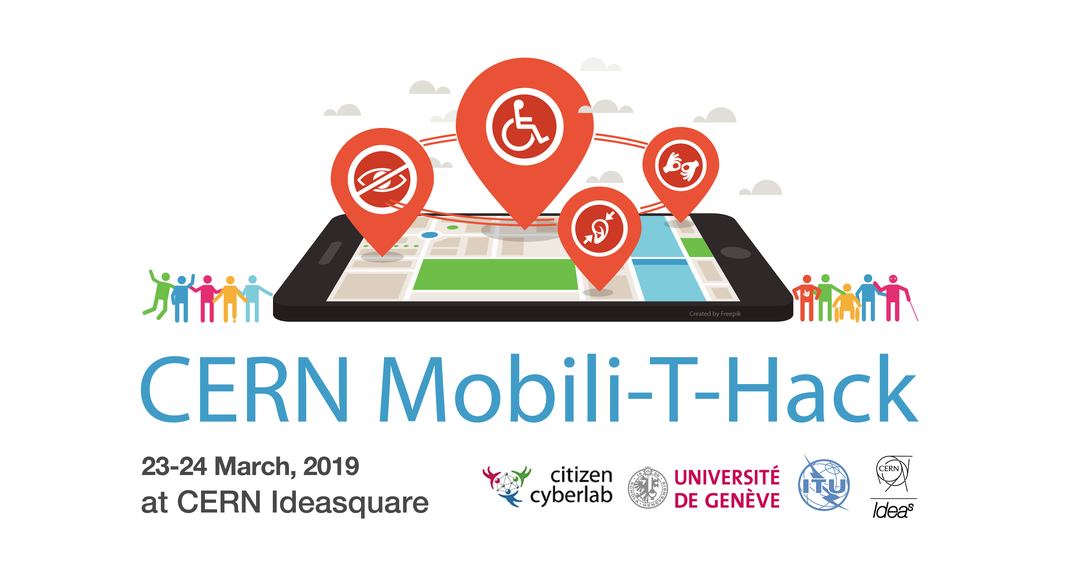The Mobility Hackathon is a two days event that focuses on the intersection of digital technology and urbanization, in the context of Geneva. The aim of the hackathon is to bring together a diverse range of perspectives, and ignite the flow of ideas between different members of society in Geneva, from neighbouring regions, and from around the world. Specific challenges include car sharing in Geneva, social mobility diversity and inclusion, autonomous mobility, simulating and improving traffic flow across the border with France and using Internet of Things to monitor traffic in Meyrin. Bring your own challenge, or pitch in to help another team!
Get a glimpse from last year here https://bit.ly/2HjErZf and register here https://bit.ly/2Hh5JiZ
Le Mobility Hackathon est un événement d'une journée qui se concentre sur l'intersection de la technologie numérique et de l'urbanisation, dans le contexte du Grand Genève. Le but du hackathon est de rassembler un large éventail de perspectives et d'initier le flux d'idées entre différents membres de la société à Genève, dans les régions voisines, et du monde entier. Les défis spécifiques incluent l'auto-partage à Genève, la mobilité inclusive et sociale, la mobilité autonome, la simulation et l'amélioration du flux de trafic transfrontalière avec la France et l'utilisation de l'Internet des objets pour analyser le trafic à Meyrin. Apportez votre propre défi ou aidez une autre équipe!
Voici un aperçu de la dernière version https://bit.ly/2HjErZf et enregistrez-vous sur ce lien https://bit.ly/2Hh5JiZ !
Check Previous Mobility Hackathon 2018
Bring your own challenge or join one of the following challenges!
CoMobilis.org
The Open Auto is an open hardware car sharing platform based on the Particle IoT service. The aim of the hackathon will be to build a new prototype based on a fully open stack using to replicate and enhance the functionality for car sharing, enhance the security of the system, while reducing the cost of ownership for the platform to 0.
ParkinGo
Providing integrated system to put in service the private parking lots to be used as for publics. Our system allows those who have private parking lots to share it for public use -when available- and gain some income. It increases the use of one parking lot without the need to build new ones, that saves environment by decreasing the carbon emission caused by cars surveying available lots, and augments the opportunity to find available parking place at the destination.
ParkinGo is looking for a team of hardware engineers, data security engineers (IoT), web designers, developers and prototype designers and use CERN facilities to bring the first prototype to life.
BeltCompass.com
BeltCompass is a project in collaboration with the ABA Association, Association pour le bien des aveugles et malvoyants. It aims to change the navigation for people with spatial mobility problems (i.e. Visually impaired).
Bel-Compass is looking for people to join their team and make it real, people who are willing to move it from the lab and change blinds lives.
People can join the team to work on the technology side (Design of the user interface, Improving GPS precision, validation of data coming from Open Street Map, data privacy and security)
Or the social side to raise awareness about the blind and visually impaired mobility limitations and testing the belt.
CERN Autonomous Vehicles
Simulating and improving traffic flow across the border with France using Internet of Things to monitor traffic in Meyrin.
The large influx of cars at CERN during the day overloads the parking in the area, leading to traffic issues for workers. This project aims to increase fluidity by providing autonomous vehicles that would manage the last part of employees’ itinerary towards their workplace, therefore allowing external parking to be used, relieving some of the stress put on circulation. The aims of the hackathon is to observe the effect of the autonomous vehicles on circulation in this specific setting to assert its usefulness as a solution to traffic on French-Swiss borders also look into the hacking scenarios of the autonomous buses.
Future Circular Collider Robot (FCCR)
The Future Circular Collider (FCC) is a project of unprecedented scale. With a length of 100 kilometres, it is the largest structure of its kind.
Considering the equally consequent need for manpower and the dangers involved in the construction of the FCC, robotic support would greatly reduce the costs and improve safety.
However, constructing the edifice with the help of robots isn’t only about efficiency. It’s about sustainability. Due to its gigantic nature, the FCC maintenance and repair are a daunting challenge: If any malfunction occurs, engineers or materials can quite often be numerous kilometres away which drastically slows down the repair process. The following technology can fix this.
By integrating autonomous robots to autonomous vehicles, it becomes possible to have multiple units spread across the FCC that can provide a swift response to arising needs.
